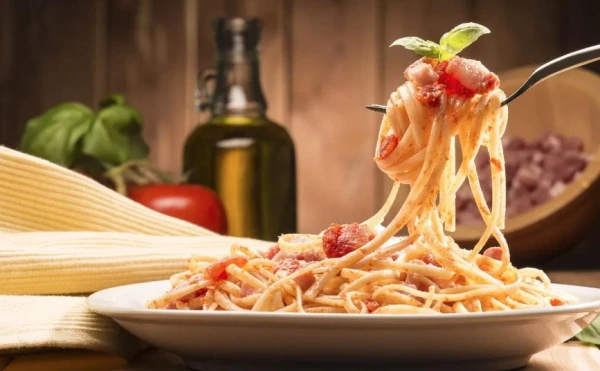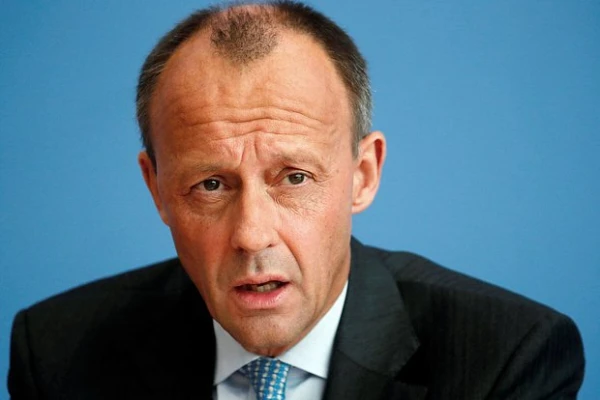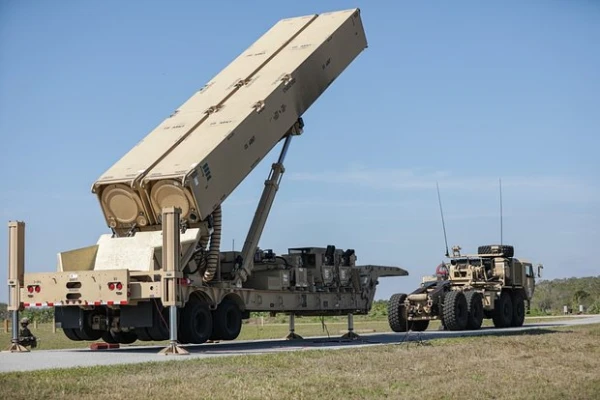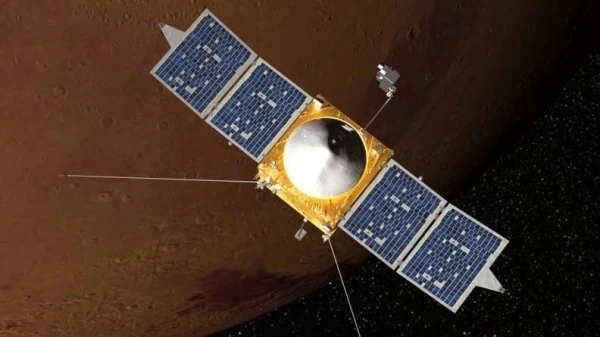
Faced with the threat of exorbitant tariffs from the U.S., Italian pasta manufacturers are hoping for political support—and that they won't have to wait for a court ruling on their case.
In the midst of a global trade storm that erupted after the election of U.S. President Donald Trump, Italian pasta manufacturers feel abandoned.
On September 4, the U.S. Department of Commerce announced preliminary tariffs of 91.74% on 13 brands of pasta.
If the tariffs are confirmed, they will take effect in January 2026, which would deal a significant blow to Italy, which exported pasta worth about 700 million euros to the U.S. in 2024.
"This is unfair; it is a protectionist action by the U.S. against Italian pasta," said Margarita Mastromauro, president of Unione Italiana Food, the largest association of food producers in Italy, to Euronews.
Remaining unnoticed for a month, this issue is now attracting increasing attention, driven by pressure from Italian industrialists.
However, in the tariff war of the U.S. administration, pasta occupies a special place.
It all began in 1996 when American pasta producers accused Italian manufacturers of dumping—selling their products in the U.S. market at prices lower than in Italy.
Since then, Italian producers have regularly faced tariffs, but never on such a scale as now.
Combined with the 15% duties currently applied to EU imports in the U.S., the total tariff burden, if imposed, would be 106.74%. Pasta manufacturers say this is brutal.
"We need help because most of our companies are involved in this process. With such a high duty, all these companies will not be able to export their products until a new analysis is conducted," Mastromauro said.
The investigation covers the period from July 1, 2023, to June 30, 2024. Italian manufacturers hope that a review at the end of 2025 will bring them some relief. But for now, the future remains uncertain.
Could the Struggle Turn Political?
Companies have been trying to get the tariffs revoked since September.
Two of them, Garofalo and La Molisana, have filed lawsuits against this decision.
The Italian government and the European Commission have joined the case. However, the room for maneuver remains limited in what the president of the Union of Italian Food describes as more of a "legal" than a "political" issue.
Italy's Minister of Agriculture Francesco Lollobrigida condemned the "hyper-protectionist mechanism aimed at our pasta producers."
Meanwhile, in Washington, Italian representatives are actively working to ensure their voices are heard.
The Italian Ministry of Foreign Affairs stated that the tariffs are "disproportionate" and joined the case review at the U.S. Department of Commerce as an "interested party" to advocate for this key sector of the Italian economy.
For its part, the European Commission, which has accumulated numerous trade disputes with the U.S. in recent months, continues to prepare. Dialogue is one of the possible paths opened by the tariff agreement reached in July between Brussels and Washington, which set U.S. tariffs on EU imports at 15%.
Its implementation is being closely monitored on both sides of the Atlantic amid ongoing doubts about whether Trump will keep his word.
It remains unclear whether Italian pasta will make it onto the list of European demands, as the EU is still negotiating the elimination of 50% tariffs on steel from the U.S. and an exemption from the 15% duties.
In response to a question from Euronews, an EU spokesperson acknowledged that unlike the unilateral tariffs imposed on other EU goods that violate World Trade Organization (WTO) rules governing international trade, the U.S. anti-dumping actions against pasta appear to be conducted in a traditional manner, as a trade protection mechanism permitted by the WTO.
"We are closely monitoring this case, and if deficiencies are found in the investigation, we will challenge it and raise the issue at the WTO," the official told Euronews.
If so, this could lead to retaliatory measures from the EU.
The European Parliament is also not standing idly by, although in trade matters, all powers belong to the European Commission.
Italian socialist MEP Brando Benifei, who heads the parliamentary delegation for relations with the U.S., condemns Washington's actions, which he considers "clearly discriminatory."
"This needs to be resolved, and we urge the Commission to take appropriate measures," he said in an interview with Euronews.
But why has Italy become the target? This raises questions, considering that Italian Prime Minister Giorgia Meloni is known for her good relations with Trump.
An EU source told Euronews that this case may be the result of a dispute between the U.S. Trade Representative and the U.S. Department of Commerce—two main divisions of the American administration in trade policy.
Since Trump's return, both have been juggling responsibilities, and one of them may have tried to outdo the other by choosing iconic Italian pasta as a target.













Leave a comment